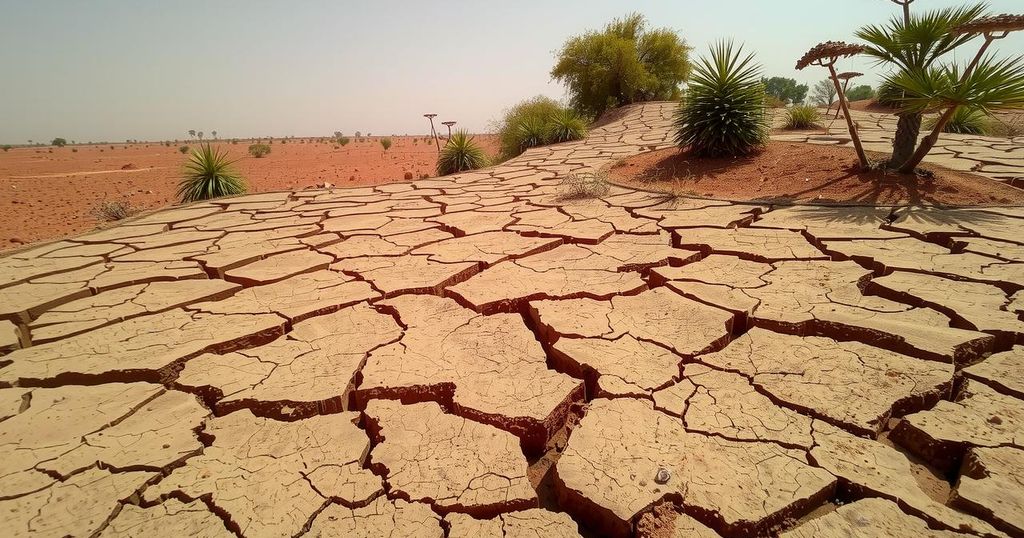Women in South Sudan Face Alarming Impact of Climate Change Heatwaves
Researchers have found that women and girls in South Sudan face increased health risks and exacerbated inequalities as the country experiences record heatwaves worsened by climate change. The February 2023 heatwave was made ten times more likely due to global warming, leading to significant disruptions to education and heightened health concerns, particularly for women. Solutions proposed include adapting school environments and reducing reliance on fossil fuels to combat ongoing climate change effects.
Recent research indicates that in South Sudan, climate change is disproportionately affecting women and girls, intensifying health risks and societal inequalities. A study published by the World Weather Attribution (WWA) revealed that February’s heatwave was rendered ten times more likely and two degrees Celsius warmer as a result of human-induced climate change. The extreme temperatures significantly impacted daily life, leading to widespread school closures and health crises among students due to heat strokes in Juba, the capital city.
Typically, the highest temperatures do not occur until later in the year; however, this year saw an unusually early heatwave in February, disrupting academic schedules. Most schools in South Sudan lack air conditioning and have iron roofs that trap heat, exacerbating the impact of the heatwave. As high temperatures continue into March, the ongoing heat presents serious educational challenges, particularly for girls, who face additional barriers to returning to school after closures.
The existing gender roles in South Sudan amplify the negative effects of climate change on women, placing them at a greater risk due to their responsibilities, such as caring for children and household tasks. These roles increase their exposure to extreme heat and related illnesses, thereby worsening gender inequality. Researchers emphasized that solutions should include adapting school environments and schedules to mitigate extreme heat exposure and sustain education.
The study discusses how rising temperatures correlate with heightened risks of miscarriages and stillbirths during pregnancy. With one of the world’s highest maternal mortality rates, the findings alarmingly suggest that these climate-driven challenges threaten maternal health in South Sudan. The research highlights a pattern where already vulnerable populations, particularly women, face compounded difficulties during climate events, perpetuating existing inequalities.
Experts assert that the intensity and frequency of heatwaves are increasing due to ongoing global warming. As the world experiences approximately 1.3 degrees Celsius of warming, the conditions for such extreme heatwaves are expected to materialize more frequently, particularly in regions like South Sudan. The WWA warns that without major reductions in fossil fuel consumption, such hazardous temperatures will become a yearly occurrence, severely impacting the lives of South Sudanese, especially women.
In conclusion, the research underscores the significant impact of climate change on women and girls in South Sudan, highlighting increased health risks and educational disruptions. The worsening heatwaves, linked to human-caused climate change, exacerbate societal inequalities and threaten maternal health. To address this crisis, emphasis must be placed on adapting educational settings and societal structures, alongside global efforts to mitigate climate change by reducing fossil fuel reliance.
Original Source: www.climatechangenews.com




Post Comment